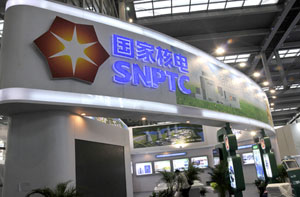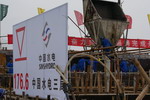Europe's QE may pose problems
Updated: 2011-10-08 08:03
By Wei Tian (China Daily)
|
|||||||||||
Policymakers may face difficulty in China's fight against high inflation
BEIJING - A new round of monetary-easing measures in Europe has boosted investor confidence in the capital market, but may bring more difficulties for China's policymakers in terms of tackling inflation and the inflow of "hot money", said economists.
On Thursday, the Europe Central Bank (ECB) decided to hold its key interest rate at 1.5 percent and offer emergency short-term loans to the continent's battered banks which are facing difficulties in borrowing because of concerns about each other's financial stability.
Meanwhile the ECB will cut rates as early as December when the new economic projection is underway, Tobias Blattner, a former ECB economist, was quoted by Bloomberg as saying.
Also on Thursday, the Bank of England (BOE), the United Kingdom's central bank, reactivated stimulus measures by agreeing to inject 75 billion pounds ($116 billion) into the British economy, increasing the size of the country's quantitative-easing (QE) package to 275 billion pounds.
Asian stock markets rose strongly on Friday following the moves from the ECB and BOE - Hong Kong's Hang Seng index leapt 3.11 percent and Japan's Nikkei index rose 0.98 percent.
Although the market on the Chinese mainland was closed as part of the country's National Day holiday, analysts expect to see a good performance when stocks begin trading again on Monday.
However, good news for the Chinese capital market may not be beneficial for the country's macro economy, said Yuan Gangming, a researcher at the Center for China in the World Economy at Tsinghua University in Beijing.
"The QE by Europe's central banks has helped China's stock market to dodge a major shock during the holiday," said Yuan. "But on the other hand, it is also a way of exporting their trouble to the rest of the world."
As Europe injects liquidity into the global market, the "prudent" monetary policy adopted by China's central bank is likely to invite more inflows of hot money, adding more pressure to the country's inflation, Yuan said.
Yuan suggested that the central bank should begin to adopt loosening measures to ease external pressures and the tensions on the domestic credit chain, which is already fragile in the light of the financing difficulties faced by many private businesses.
However, the governor of China's central bank Zhou Xiaochuan recently reiterated his stance on tackling inflation as the priority task, suggesting the tightening measures will remain in place unless the rate of inflation falls.
Yuan predicted that the consumer price index for September, which will be released next week, is expected to be around 6.2 percent, which means Chinese inflation has already retreated from its peak.
Grace Tam, a market strategist with JP Morgan Asset Management, also said China may have already seen its inflationary peak and a reduction will allow the government to ease its monetary stance.
"It is also worth noting that net exports now play a smaller role in the Chinese economy, and final demand is now mainly driven by investment and domestic consumption ... we believe it (the economy) is heading for a soft landing." said Tam.
Related Stories
China needs to see Europe debt plan: Experts 2011-10-01 08:12
Euro-zone debt crisis complicates China's policy-making 2011-09-26 10:43
Europe warned over its debt crisis 2011-09-26 07:07
Debt crisis may cause more friction 2011-09-21 07:15
- Group-buying sites entering gold market
- Tourism sees surge for National Day
- China sees 20% decline in Sept futures market deals
- HK's foreign currency reserves drop in Sept
- Europe's QE may pose problems
- Vote on currency bill set to next week
- China's cotton import down 13.8% in Aug
- China increasingly important for US growth













